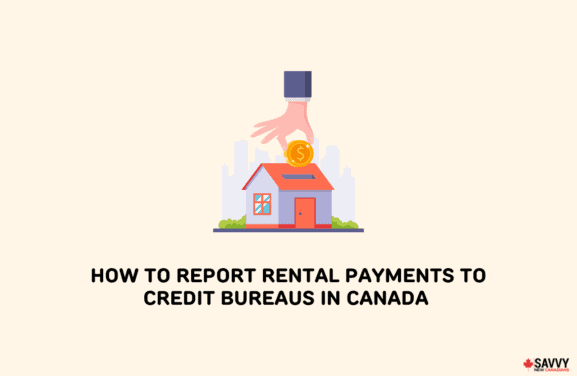Your FICO score in Canada can impact major things in your life. This score is crucial when applying for a credit card or a loan because lenders use it to determine your creditworthiness.
The three-digit FICO score indicates how you are as a borrower, so understanding it is essential. Learn more about FICO scores, how it is calculated, why you should check your score and more.
Key Takeaways
- A FICO score is a credit score that uses the proprietary scoring model of analytics firm FICO or Fair Isaac Corporation.
- FICO scores range from 300 to 850, with the average range being 670 to 739.
- FICO scores are calculated based on payment history (35%), credit utilization (30%), length of credit history (15%), new credit accounts (10%) and credit mix (10%).
What is a FICO Score?
A FICO score is a specific brand of credit score that uses the proprietary scoring model of FICO, or Fair Isaac Corporation, a US-based analytics organization that develops credit scoring models lenders use to determine an individual’s credit score.
FICO scores range from 300 to 850, with 850 being the best. The higher the FICO score of the borrower, the lower the lender risk.
FICO scores depend on your credit report, a statement containing information about your credit activity, including loan paying history and the status of your credit accounts.
Lenders use FICO scores to evaluate borrower risk and assess the creditworthiness of a potential borrower. Borrowers with higher scores have better chances of qualifying for a loan and a better interest rate.
FICO Score Range
As mentioned, the FICO score range is from 300 to 850. These are usually broken down into five ranges:
| Poor | Fair | Good | Very Good | Exceptional |
| 579 and below | 580 to 669 | 670 to 739 | 740 to 799 | 800 and above |
How is a FICO Score Calculated?
FICO scores are calculated based on information in consumer credit reports. Five factors go into the calculation of your FICO score:
- Payment history – 35%
- Credit utilization / Amounts owed – 30%
- Length of credit history – 15%
- New credit accounts – 10%
- Credit mix / Types of credit used – 10%
FICO Score vs Credit Score
It is common to hear the FICO score vs credit score argument. Essentially, “FICO score” and “credit score” are the same.
A FICO score is a type of credit scoring model that FICO developed using various factors. A credit score is a three-digit numerical representation, as with the FICO score, that measures an individual’s financial health and creditworthiness.
Companies like Equifax and TransUnion generate their credit scores using information found in your credit report, a collection of information about your financial status that includes the following:
- Your personal information (including your name, address, birthdate, Social Security number, phone numbers, etc.)
- Credit accounts (current and historical credit accounts, account balance, credit limit or amount, payment history, etc.)
- Public records (including liens, foreclosures, bankruptcy filings, civil suits and judgments)
- Inquiries about you from individuals and companies that have accessed or requested access to your credit report
How to Check Your FICO Score for Free in Canada
Unlike in the US, consumers in Canada do not have direct access to their FICO scores. Credit bureaus only provide FICO scores to lenders.
But with the introduction of the FICO Scores Open Access Program in Canada, consumers can access their FICO score for free – but only through their lenders.
Participants in the program provide consumers with regularly updated FICO scores free of charge via online banking websites, mobile applications and paper statements.
goPeer is the first peer-to-peer lending platform to provide a FICO score check for free to Canadians. Leading start-up Parachute is the first organization to provide FICO Score 10 to customers for free.
FICO Score 10 is the newest FICO credit scoring model, which looks at payment and debt history for the previous 24-plus months to calculate credit scores.
Why You Should Check Your Credit Score Regularly
Regularly checking your credit score and credit report is vital because it helps you see what lenders may see when assessing your loan and credit card applications. Checking your credit reports can also help detect inaccurate or incomplete information.
While your credit score from the different bureaus may vary, they are all considered accurate. The credit bureaus get information from your lenders and creditors and use them to determine your credit score.
All credit scores depend on the contents of your credit report. Thus, it is critical that you check your credit reports to make sure that the information in them is correct and complete.
How to Raise Your FICO Score
Improving your FICO score can be done in several ways. These include the following:
- Paying bills on time
- Paying off debts as fast as you can
- Using various types of credit
- Keeping your old accounts open
- Maintaining your credit card balance below the limit
- Applying for credit sparingly
- Lowering your credit utilization (amounts owed)
- Checking your credit reports regularly
KOHO Credit Building Product
Building your credit is also crucial in raising your FICO score. One way to do that is through Credit Building from Canadian fintech company KOHO. It is an affordable, interest-free method of building or rebuilding your credit history.
KOHO offers two ways to build your credit:
- Credit Building. In this option, KOHO opens a line of credit just for credit building. You pick an amount to set aside from your line of credit.
- Flexible Credit Building. Deposit your money as a line of credit (from $30 to $500), make on-time payments and build your credit history.
You can also supercharge your credit history by using both methods. Each month, KOHO will report on-time payments to Equifax. Whatever plan you choose, there is no interest, no applications and approval is guaranteed.
FAQs
A good FICO credit score is in the range of 670 and 739. It is near average, and most creditors regard this score as good. With some lenders, a lower score is considered good, while others will require a higher score to be categorized as good.
A FICO score and a credit score essentially refer to the same thing. The FICO score is a particular brand of credit score developed by analytics firm Fair Isaac Corporation. Both help lenders and creditors decide on an individual’s creditworthiness.
Overall, no credit bureau is necessarily more accurate than the others. Your FICO score may differ from Experian because the lender may be using a FICO score that used data from another credit bureau, or it may be different because it used another FICO scoring method. The differences in your credit scores are often due to FICO scores being based on credit report data from a specific consumer reporting agency.
Credit scores from Experian and Credit Karma are both accurate. Experian, the largest credit bureau in the US, uses FICO Score 8, while Credit Karma is an online service offering Vantage 3.0 scores from TransUnion and Equifax, Canada’s two major consumer credit bureaus. The accuracy of the scores depends on the correctness of the information lenders and creditors provide.



